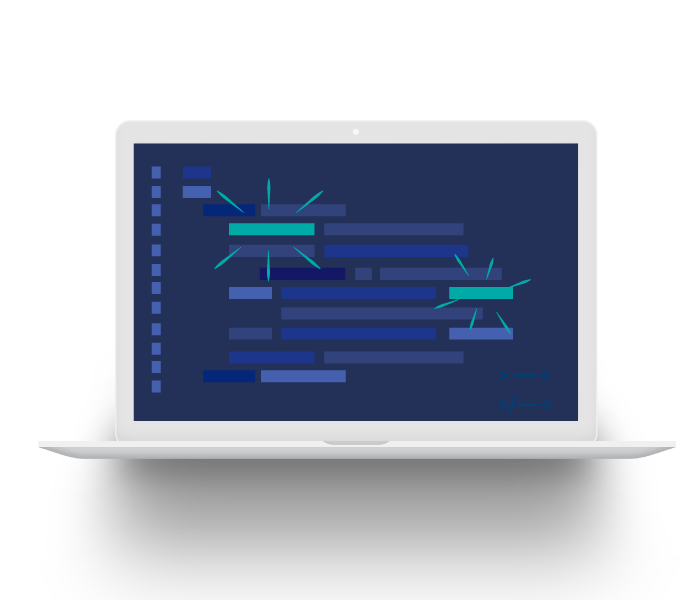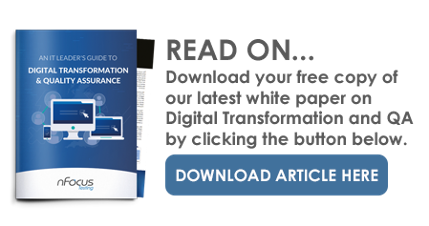Introduction to Ryan Dudley
1. How long have you been working in testing?
I've been in testing now for 6 and a half years. I joined nFocus fresh out of college as an apprentice at the age of 18 and never looked back! I've been exposed to a wide range of testing approaches and technologies and I've been able to work on a variety of different projects all with their own challenges.
2. What is your favourite area of testing?
Automation Testing - I find it fascinating how you can automate a task, removing the need to check that piece of functionality manually. This then allows you to have a great regression pack to be run whenever you like, giving you confidence when you are heading into a new release.
3. What made you decide to work in Software Testing?
Growing up, I always had a fascination with technology and always knew that I wanted to work within IT. At the time, I didn't know what that was going to entail so I completed a software development course at college. From there, I was offered two apprenticeships, one being testing with nFocus and the other involving computer services. After having a day working with both companies, I was more drawn to the problem solving which testing provided.
4. What life skills/lessons do you feel you have learnt from being a tester?
Problem solving - now when I have a problem, I try my hardest to overcome the problem on my own via troubleshooting or browsing the internet before asking other people for help.
5. Agile or Waterfall?
Agile - I like how you get access to the application much sooner which allows you to identify problems a lot faster. It also allows changes to be made within the project a lot easier.
6. What do you think is the best way for testers and developers to be able to work together?
I like pieces of software like Slack and Teams. This allows teams to set up private groups/channels where the whole team can discuss various problems about the application. It is a useful tool when investigating certain problems as everyone in the team can see the issue. This allows them to have an input about what the problem is/might be.
7. Coke or Pepsi?
Pepsi!
8. What advice would you give to any manual testers looking to work with test automation more?
I know it sounds obvious, but spending time reviewing your code. Checking to make sure you have not made any obvious errors by stepping through it in debug, line by line around the point of the error. Google is also really helpful to see where other people have encountered the same challenges and how they’ve overcome them.
9. What are some common mistakes you have seen made during your testing career?
The biggest mistakes I have seen made by people in my career since starting testing is the challenge against timescales. I have seen the testing scope cut just to hit certain targets which can cause massive risk to the product. Also I've seen problems with the application when it went live due to the testing scope being cut.
10. What are the main challenges you come across in software testing?
No project is the same and they all have their own problems but with this comes great rewards and sense of achievement. This has also allowed me to have a wider knowledge of different applications and approaches.
11. Do you think it’s better for testers to be skilled in multiple disciplines of testing or focused on one area?
A tester who is skilled in multiple disciplines of testing in my opinions is a much bigger asset to a project/organisation. This is because they can be used in more than just one capacity. In some scenarios helping with work loads especially within the agile methodology.
12. What is the one thing that testers should not do?
Make assumptions - making assumptions about the item under test can cause massive consequences to the project. For example, If you were to pass a test case in a regression test run which has been previously passed, how can you actually guarantee that the piece of functionality that you’re testing works correctly.
13. Would you rather explore deep space or the deep ocean?
Deep Ocean
14. What do you feel are the main benefits of test automation over manual testing?
The main benefits are taking the need for a tester to run the same tests manually when ever those tests need running, freeing the tester up to look at something else. If the automation test is done right it also takes away the element of human error away.









.png)
